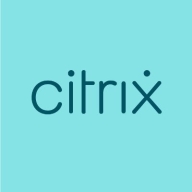


Citrix Endpoint Management and Sophos Mobile are competitive solutions in the mobile device management arena. Customers often favor Sophos Mobile for its comprehensive features, which are considered worth the investment, while Citrix is preferred for its robust security capabilities.
Features: Citrix Endpoint Management integrates with Citrix Workspace, facilitating seamless access to virtual applications and desktops, prioritizing security with a focus on secure application delivery and flexible application management. Sophos Mobile offers a broad range of features, including advanced threat protection, application management, and data protection. Additionally, it provides centralized management and comprehensive support for various device types.
Room for Improvement: Citrix Endpoint Management could enhance user experience by further simplifying its interface and improving technical support response times. Cost optimization is another area of potential improvement for Citrix. Sophos Mobile can improve in areas such as integration complexity for non-Sophos environments and further enhancing documentation and training resources. Users also suggest simplifying policy management features.
Ease of Deployment and Customer Service: Citrix Endpoint Management excels in integrating with existing Citrix environments, providing efficient deployment processes. Customers appreciate the seamless management capabilities offered to organizations using Citrix technologies. Sophos Mobile is noted for its straightforward deployment, detailed guidance, and responsive customer service, often delivering a speedier setup and superior technical assistance.
Pricing and ROI: Citrix Endpoint Management has higher upfront costs, but its ROI aligns well with its security offerings and integration benefits. Sophos Mobile is seen as a more cost-effective option with significant ROI due to its comprehensive protective features. It balances lower setup costs with high security and functionality returns, often viewed as the more economical choice.



Microsoft Intune provides centralized management of mobile devices and applications, ensuring security, compliance, and productivity through integration with Microsoft services like Microsoft 365 and Azure Active Directory.
Organizations use Intune for managing mobile devices and applications, enhancing security and compliance across platforms. With features like single sign-on, conditional access, and zero-touch deployment via Autopilot, it facilitates efficient operations. Intune's scalability, easy enrollment, and capabilities such as remote wipe support diverse device management, offering robust data protection and efficient operation. Despite its features, improvement areas include reporting, compatibility with non-Microsoft devices, and better support for macOS and Linux devices.
What are the key features of Microsoft Intune?
What benefits should users look for in reviews?
In industries such as finance, healthcare, and education, Microsoft Intune is implemented to ensure secure and compliant device management. Companies leverage its capabilities to deploy security policies and manage both corporate-owned and BYOD environments, facilitating a unified approach to data protection and compliance.
XenMobile is a comprehensive solution to manage mobile apps, data and devices, available both on-premises and in the cloud. Users have single-click access to all of their apps from a unified corporate app store and IT can easily configure, secure and support mobile devices. With XenMobile technology, IT can meet their compliance and control needs while giving users the freedom to experience work and life their way.
Sophos Mobile is a Unified Endpoint Management (UEM) and security solution that helps businesses spend less time and effort to manage and secure traditional and mobile endpoints. The only UEM solution that integrates natively with a leading next-gen endpoint security platform, Sophos Mobile supports management of Windows 10, macOS, iOS, and Android devices.
We monitor all Unified Endpoint Management (UEM) reviews to prevent fraudulent reviews and keep review quality high. We do not post reviews by company employees or direct competitors. We validate each review for authenticity via cross-reference with LinkedIn, and personal follow-up with the reviewer when necessary.